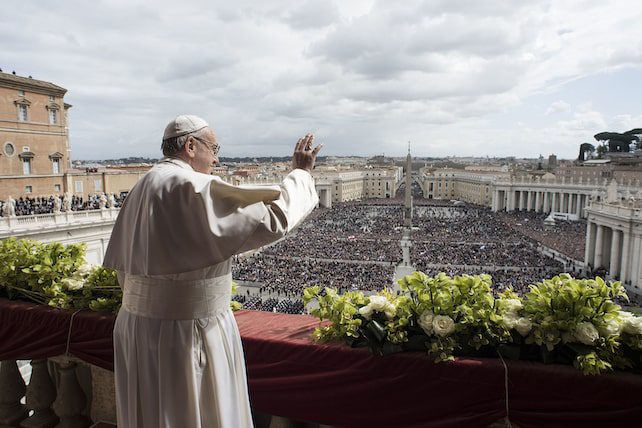But when it came to questions of homosexuality, the female priesthood, abortion or euthanasia, “Bergoglio didn’t change a thing,” Borghesi said. “Conservatives thought he was a progressive pope, but from a traditional and dogmatic view, he was a conservative,” the professor said. Francis spoke candidly in opposition to abortion and criticized gender theories as a form of “ideological colonization.”
Instead, Francis took a pastoral approach, setting aside theology in favor of personal encounters with gay couples and their advocates in the church. He invited trans sex workers to Vatican events and encouraged the appointment of women to lead Vatican departments.
“It will be difficult to return to a harsh and severe pope who only insists on rules and doesn’t walk the path of mercy, which Pope John Paul II and Pope Benedict XVI had already laid out, and is the way of the church in modern times,” Borghesi said. “I think there is no turning back from this.”
Francis took the reins of the Catholic Church at an all-time low in its popularity after years of bad news about bishops’ mishandling of clergy sexual abuse, capped by The Boston Globe’s 2002 “Spotlight” investigation showing countless cases of sexual abuse by clergy in the United States. The pope took on the abuse crisis by creating new laws obligating clergy to report abuse to the authorities, removed the pontifical secret from abuse cases and applied accountability measures in dioceses. At the Vatican, he created the Pontifical Commission for the Protection of Minors with the goal of advising the church on how to prevent abuse cases in the future.
Francis’ efforts had mixed results. The Vatican commission was stymied by political wrangling and the pope himself seemed to lower his disciplinary standards for those close to him, such as Bishop Gustavo Zanchetta, who was found guilty of pedophilia by an Argentine court, and Bishop Juan Barros, who covered up for the infamous Chilean pedophile priest Fernando Karadima.
Francis also enacted restrictions on the Traditional Latin Mass with his 2021 decree “Traditionis Custodes,” which was perceived as an attack on the most conservative factions in the church and in opposition with Benedict XVI’s opening toward the old rite.
Despite Francis’ failures, he did much to restore the church’s credibility in the world. “He was a pope who opened doors, leaving behind a church that speaks to all without fear,” Borghesi said. “This pope made the church acceptable and admirable once again after the grave scandals that marked the time that preceded his pontificate.”
Francis left a powerful mark in the way the Catholic Church interacts with other religions. He promoted interreligious dialogue by focusing on what global faiths shared, rather than their theological differences, and pursued interfaith charitable efforts for the poor and the environment. In 2016 he signed a joint declaration against Christian persecution in the Middle East with the Orthodox Patriarch Kirill of Moscow and in 2019 signed a historic document on Human Fraternity with Sunni Sheikh Ahmed el-Tayeb, grand imam of Al-Azhar.
In his multiple foreign trips, Francis favored “the global peripheries,” choosing to visit countries in the Global South and those distant from the Western power centers.
Diplomatically, he juggled difficult relationships with Russia, China and the United States. He will be remembered as a pope who withdrew from the Atlantic alliance favored by his predecessor John Paul II while attempting to mediate a bridge with Beijing and the Kremlin. Under his papacy, the Vatican signed and renewed a controversial deal with China that gave Beijing a voice in the appointment of bishops, which critics say limited the pope in condemning human rights violations by the People’s Republic.

